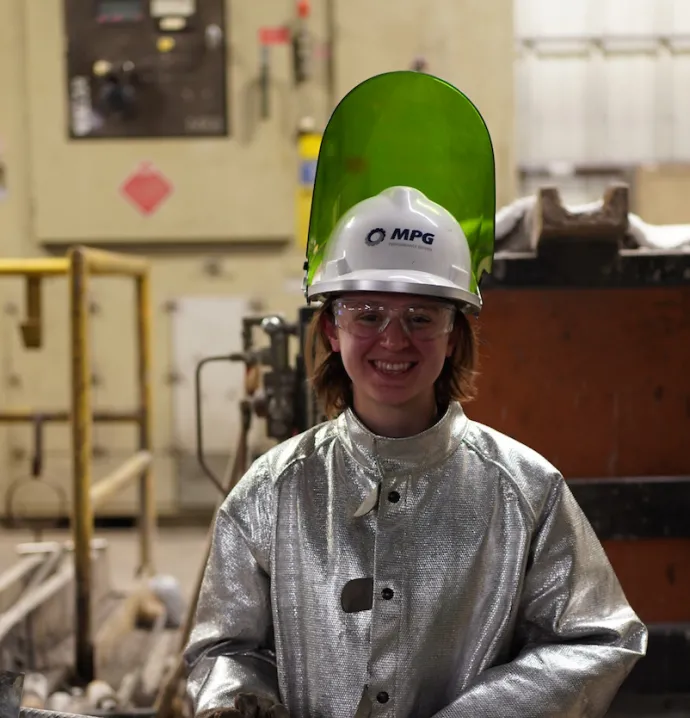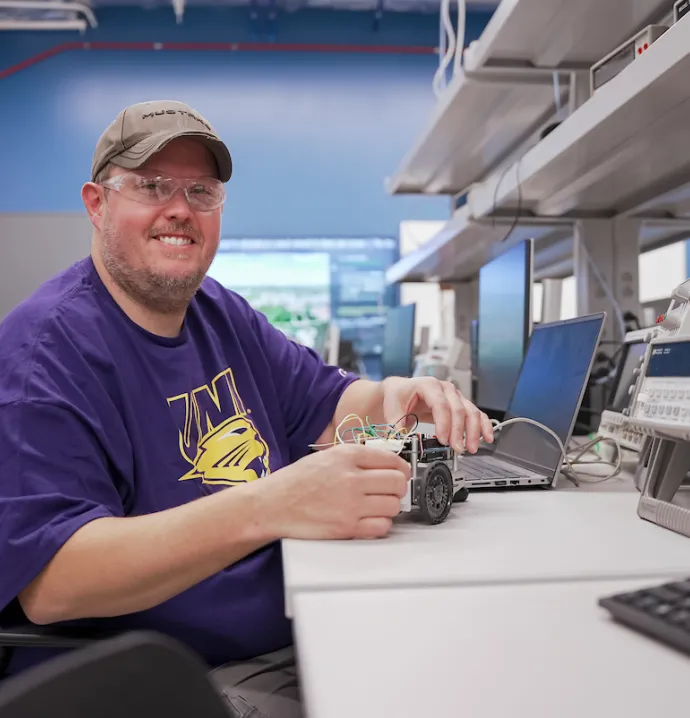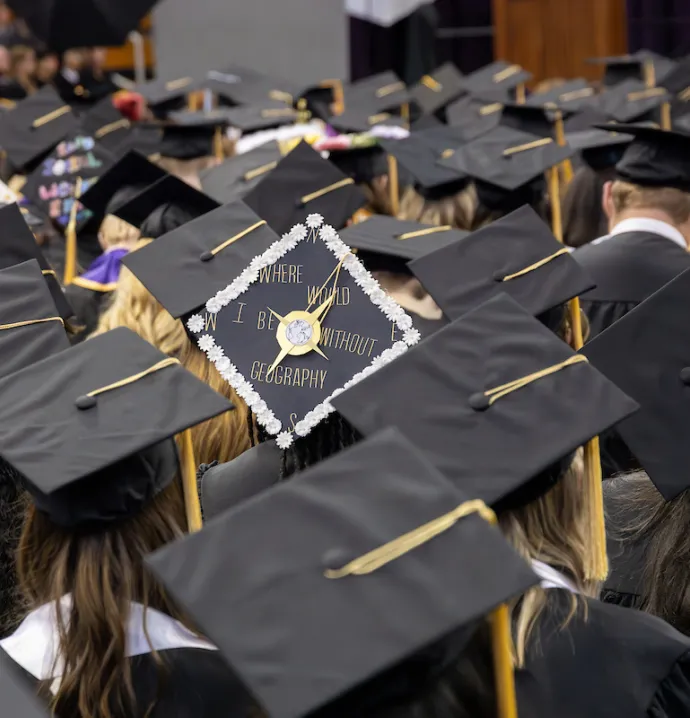UNI senior to become first materials science engineering grad
UNI senior to become first materials science engineering grad
From microscopes to industrial equipment, Isaac Simpson feels right at home at the University of Northern Iowa’s Applied Engineering Building. It’s a far cry from the LEGO sets he played with as a child that convinced him engineering was the right path for him. Yet, much like he experienced in his youth, the space offers him a place to explore his creativity, design and test. It’s a space that’s building him into an engineer.
“The Applied Engineering Building has put the resources that are required for good education at the fingertips of students, and has made it accessible to a large number of people with bigger classrooms, much larger labs and a more open space that allows for collaboration,” Simpson said.
When he graduates next spring, Simpson will be the first UNI student to have completed the materials science engineering program. He’ll achieve this honor after working in the AEB’s Metallurgy Lab and the Foundry 4.0 Center, which is one of the largest and most advanced academic foundries in North America. He’s conducted undergraduate research, interned for John Deere and will become a fourth-generation engineer on his mom’s side of the family, the first to come through UNI.


As a Cedar Falls native, Simpson grew up on campus, taking violin lessons with the UNI Suzuki School. After graduating from homeschool, he attended Hawkeye Community College to earn his associate’s degree.
When the time came to transfer for his four-year degree, Simpson chose UNI not only because it was the most affordable option, but also because he knew enrolling in the materials science engineering program would allow him to see a new degree program develop. That excited him.
“With a new program comes enormous opportunities to impact that program,” he said. “You have a voice in how that program develops.”
As Simpson explains it, materials science engineering is the study of what things are made of and how those things can be improved to become stronger, cheaper, faster, safer or more accessible.
In addition to the hands-on opportunities in the AEB, Simpson has found tremendous value in the classwork that has familiarized him with engineering software. This will help him more seamlessly integrate into the workforce when he becomes an engineer.
“If I weren’t here, I would not have been able to get my hands on simulation software, such as Flow-3D, SOLIDWORKS and Creo,” he said. “As a student at UNI, I have access to those softwares and can practice and develop my skills before going into my career.”


Simpson was able to apply what he’d learned in classes to an internship with John Deere, his dream employer.
“My internship involves a lot of data management for the new initiative of smart connected factory, which is the idea that we can improve the factory by connecting machines, automating machines and just having a massive data set right at our fingertips to answer questions and do analysis if we have an issue,” he explained.
Throughout this experience, he’s been able to talk with his UNI professors and get their input on how to build a successful engineering career.
“The really special thing about this new program is it's small, and because it's small, you get to know people,” he said. “So I get to meet my professors. I get to interact with them on a daily basis. And that's been a real privilege to me, and it helps me make connections, both academically and within the industry.”
“Isaac is an exceptional student with remarkable academic talent and a strong passion for materials science,” said Scott Giese, professor of applied engineering at UNI. “His laboratory work has been outstanding. He is currently preparing to submit his research to the American Foundry Society Undergraduate Research Competition, which presents an exciting opportunity for publication in the International Journal of Metal Casting. This is a significant achievement for an undergraduate student.”
Now, with one year left of classes, Simpson is excited to carry on his family tradition of engineering. He hopes future students see the value offered by UNI’s engineering program.
“We hope to see this program succeed and compete,” he said. “I think we have the resources. We have one of the largest academic foundries in North America, and that's a resource that is hard to compete with.”




